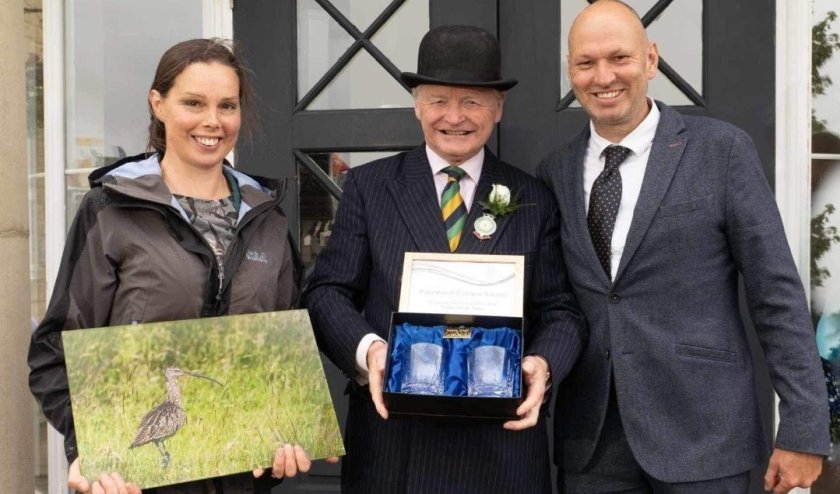
A Cumbrian farming couple have won an award for their efforts to protect and support endangered Curlews and other wading birds.
The Farmland Curlew Award was established by the Yorkshire Agricultural Society and Nidderdale AONB to recognise farmers who make a contribution to Curlew conservation.
Ian Bell and Rebeca Dickens were among seven regional winners and awarded the overall title at the Great Yorkshire Show.
The couple run their own farm in Hallbankgate, which Ian inherited from his father, and have been tenant farmers at RSPB Geltsdale since 2016.
They manage a total of 7,000 acres across the two farms, focusing on producing sustainable food in balance with nature, whilst running a viable business alongside protecting the land for nature recovery.
Figures show that curlews are rapidly declining across Europe and in the UK, having fallen 48% since the mid 1990s.
Ian said: “It isn’t easy farming very commercially, as we do, as well as providing as many habitats as we can.
"But we are trying to find a balance to show that it is possible to have both - the huge array of wildlife on our farm proves farming and nature can go hand in hand.”
He added: “We have learnt a lot from the RSPB warden Ian Ryding since we started working together, which has benefitted the Curlew on our own farm, creating the habitat they prefer with cattle grazing.”
Through the Curlew LIFE project, launched in October 2020, the RSPB is working with farmers to help improve habitat and raise awareness of conservation issues facing this rare bird.
The goal is that by December 2024, enhanced habitats will lead to more stable Curlew populations.
On both their own farm and the land they farm at RSPB Geltsdale, called Tarn House, Ian and Rebecca create ponds and pools to benefit Curlews, as they use wetland areas for washing and feeding in the breeding season.
They have also planted hedgerows to support invertebrates and birdlife.
Curlews and their young also benefit when farmers cut their meadows late, and by doing this, young chicks are being given the space to successfully fledge.
Curlew chicks take five to six weeks to fledge, and Ian and Rebecca also check for any late-hatching chicks to make sure they are not harmed during mowing.
Ian Ryding, warden at RSPB Geltsdale, said Curlews urgently needed the help of land managers and farmers across the UK.
"Ian always goes above and beyond to make sure Curlew chicks are out of the way before mowing," he added.
"In the rush to make silage during good weather, contractors often don't have time to check fields for ground nesting birds, but Ian is much more conscious of them.”
